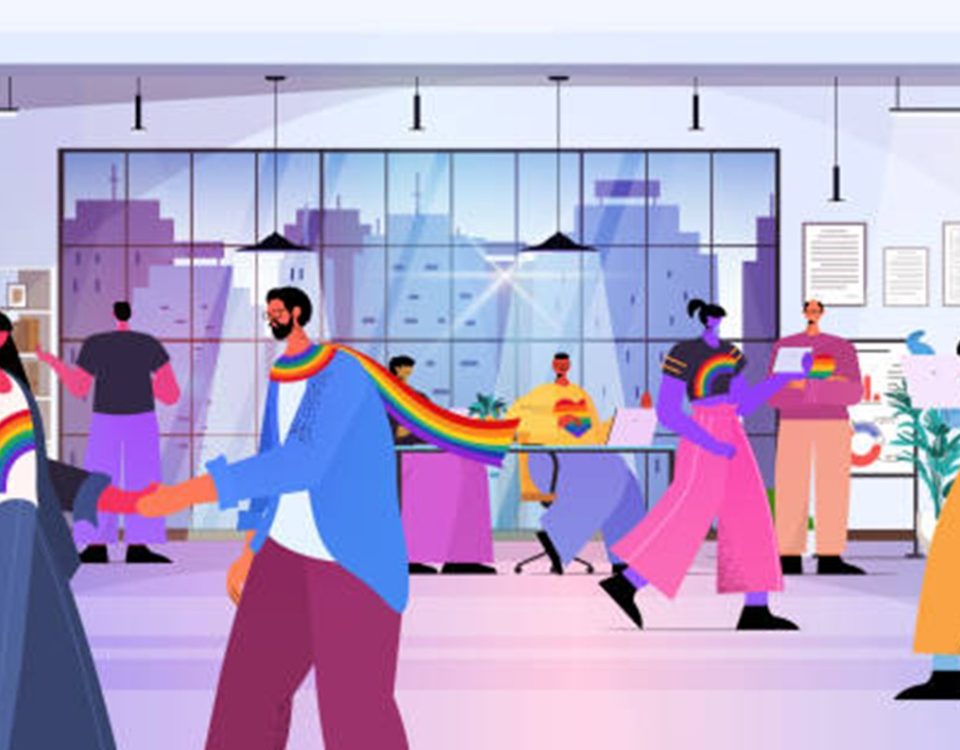- Hyderally & Associates P.C | Employment Lawyers NJ, NY
- (973) 509-8500
- tyh@employmentlit.com
Breaking Ranks: Crossing the Thin Blue Line to Report Race Discrimination
Race Discrimination in Employment Continues
June 18, 2020Victory for LGBTQ Employees Nationwide!
June 19, 2020By Francine Foner, Esq. and Ty Hyderally, Esq.
The whole world is currently focused on the systemic racism that permeates many police departments throughout the United States and its violent impact on persons of color. The toleration of racism in the criminal justice system can also create a hostile work environment for law enforcement officers of color. However, law enforcement officers are often deterred from reporting racist acts in the workplace because of the “Thin Blue Line.” While the term Thin Blue Line was coined to refer to law enforcement’s role of standing between an ordered society and potential chaos, it has also come to represent a rule among officers to never betray a fellow officer. Thus, “[w]hen any police officer or prison guard is charged with crime, the ranks close to form a thin blue line with one goal: to protect their own.” Goetz v. Kunstler, 164 Misc. 2d 557, 562-563, 625 N.Y.S.2d 447, 452, 1995 N.Y. Misc. LEXIS 118, *11. Should an officer dare to cross the Thin Blue Line by speaking against a fellow officer’s racist conduct, the reporting officer will likely be ostracized and face serious recriminations.
The New Jersey Law Against Discrimination (“NJLAD”) prohibits discrimination in the workplace based upon race, including discrimination in police departments and correctional facilities. However, because of the entrenched culture of loyalty, police and corrections officers who face racism in the workplace are often caught between the pressure to support their fellow officers whatever the circumstances, and enduring a severe and pervasive racist culture at work. Officers often choose to overlook even blatantly overt acts of race discrimination in the workplace, such as referring to an officer as a “jungle bunny” or placing historical symbols of oppression, such as a noose, on an employee’s desk or locker, rather than risk breaking ranks and facing retaliation.
One might hope that the Black Lives Matter movement will encourage more and more officers of all races and ethnicities to report racist incidents which occur in the course of performing their duties or in the workplace by fellow officers.
Unfortunately, some New Jersey law enforcement officers appear unphased and continue to spread their hate and racism. On June 9, 2020, the New Jersey Department of Corrections (“NJDOC”) put out a Tweet stating: “We have been made aware that one of our officers participated in the filming of a hateful and disappointing video that mocked the killing of George Floyd.” Fortunately, the NJDOC further stated that the individual was suspended and banned from NJDOC facilities pending a “thorough and expedited investigation.”
Only time will tell whether the current events will result in a fundamental change that will reverse the longstanding tradition that law enforcement officers must support fellow officers, even if that means remaining silent in the face of blatant racism.
This blog is for informational purposes only. It does not constitute legal advice, and may not reasonably be relied upon as such. If you face a legal issue, you should consult a qualified attorney for independent legal advice with regard to your particular set of facts. This blog may constitute attorney advertising. This blog is not intended to communicate with anyone in a state or other jurisdiction where such a blog may fail to comply with all laws and ethical rules of that state of jurisdiction.

